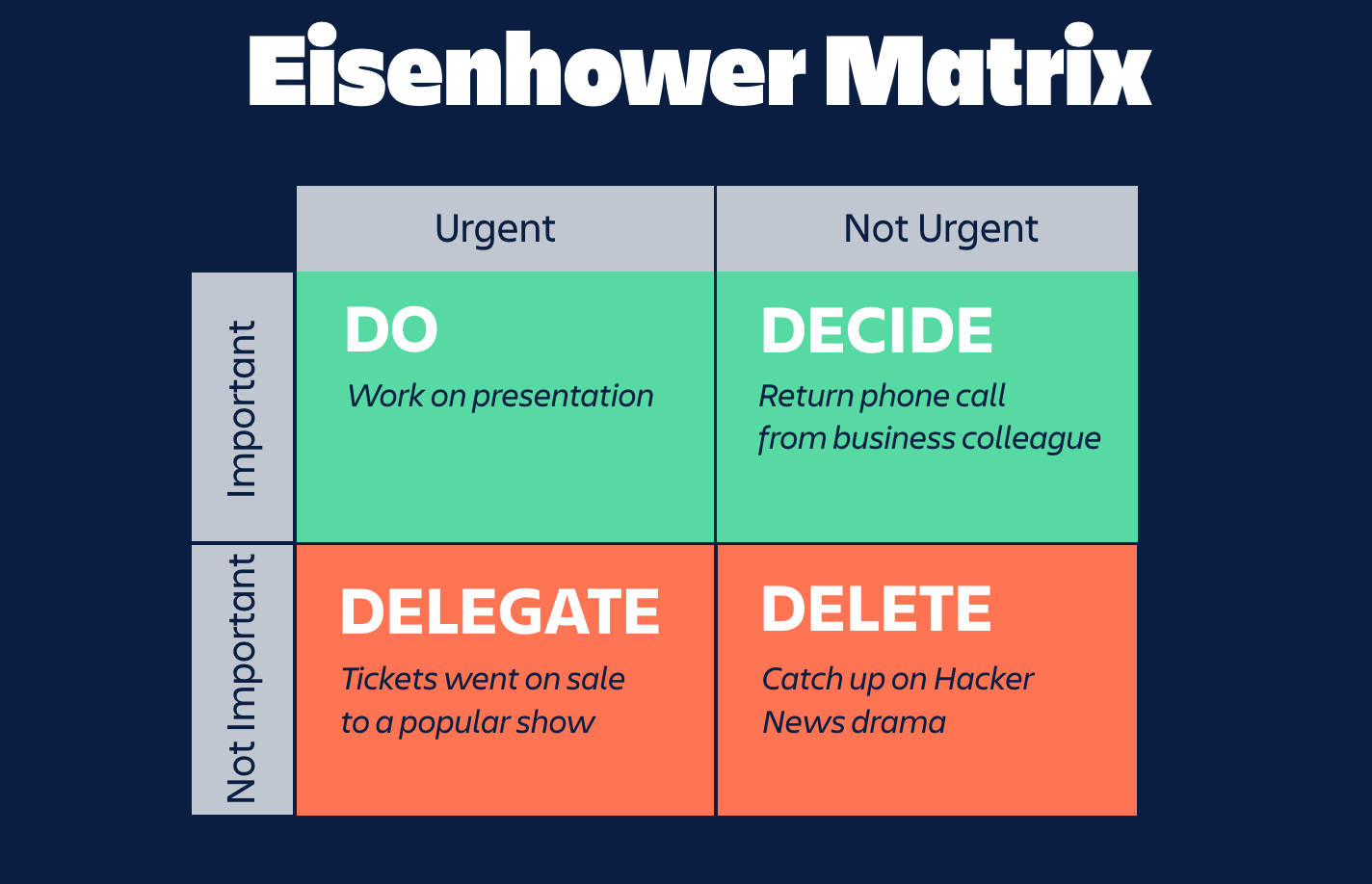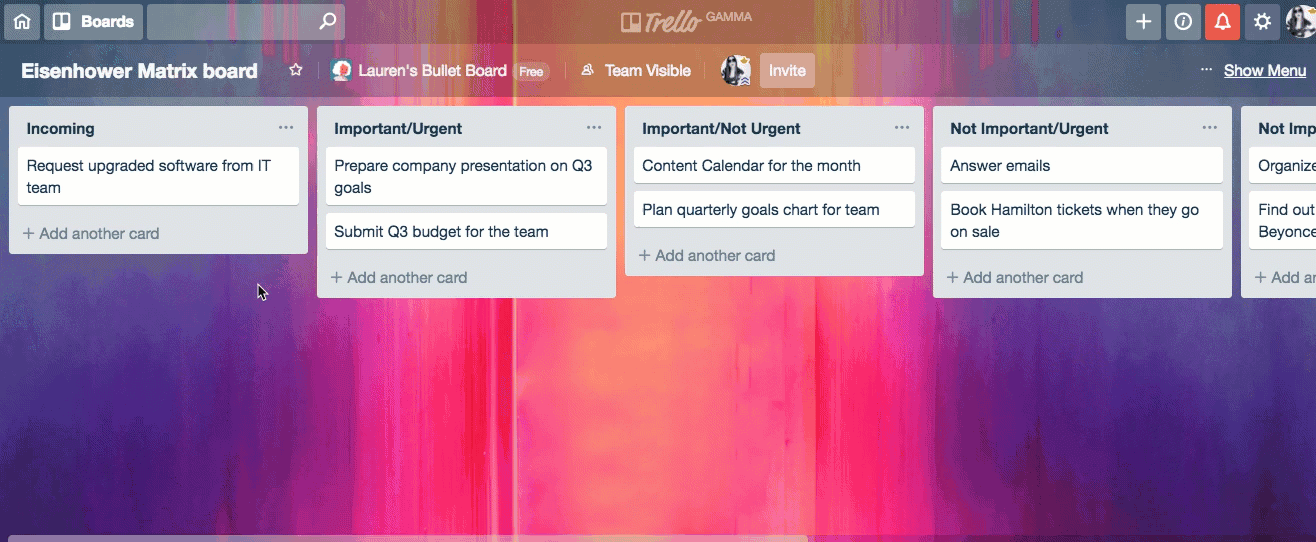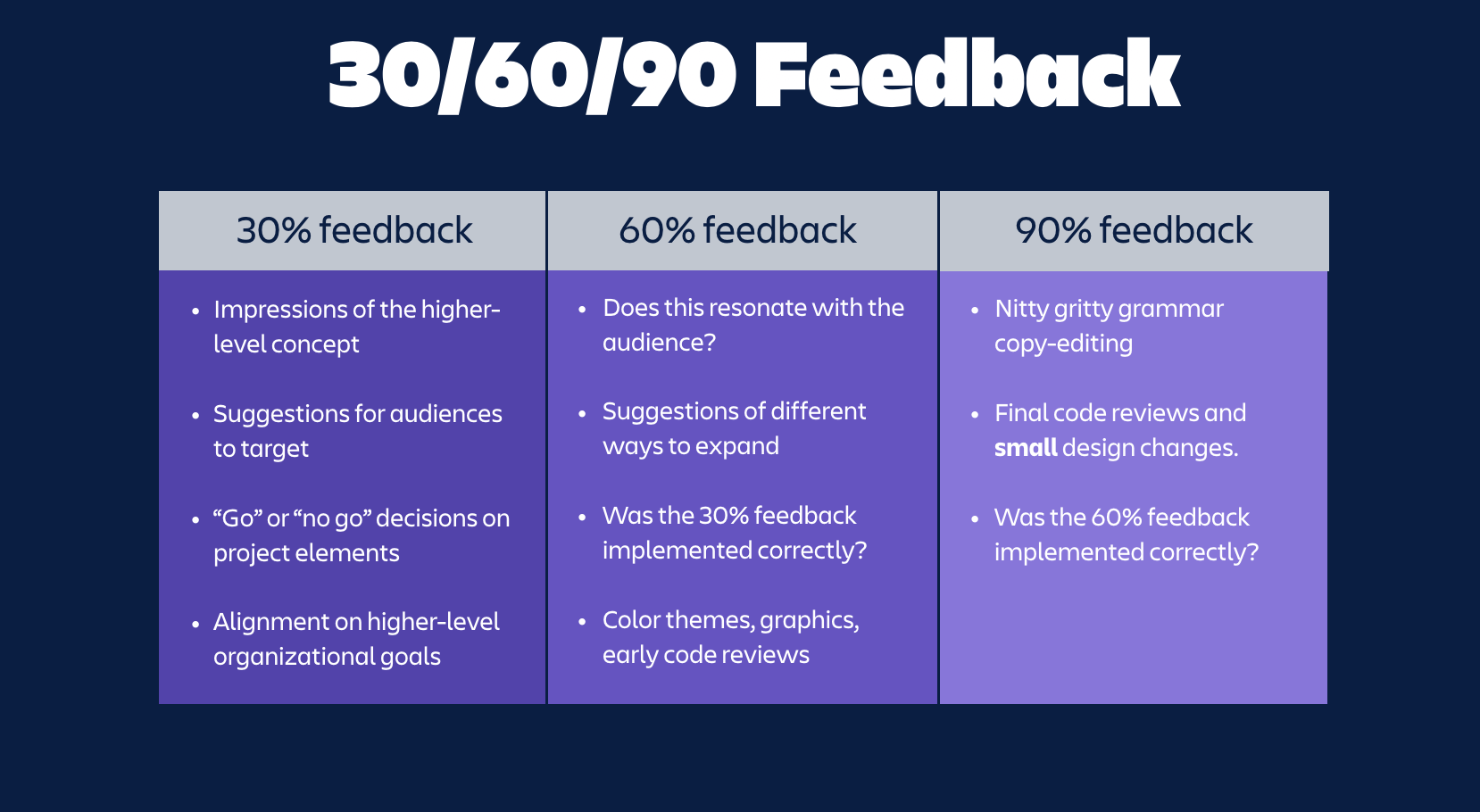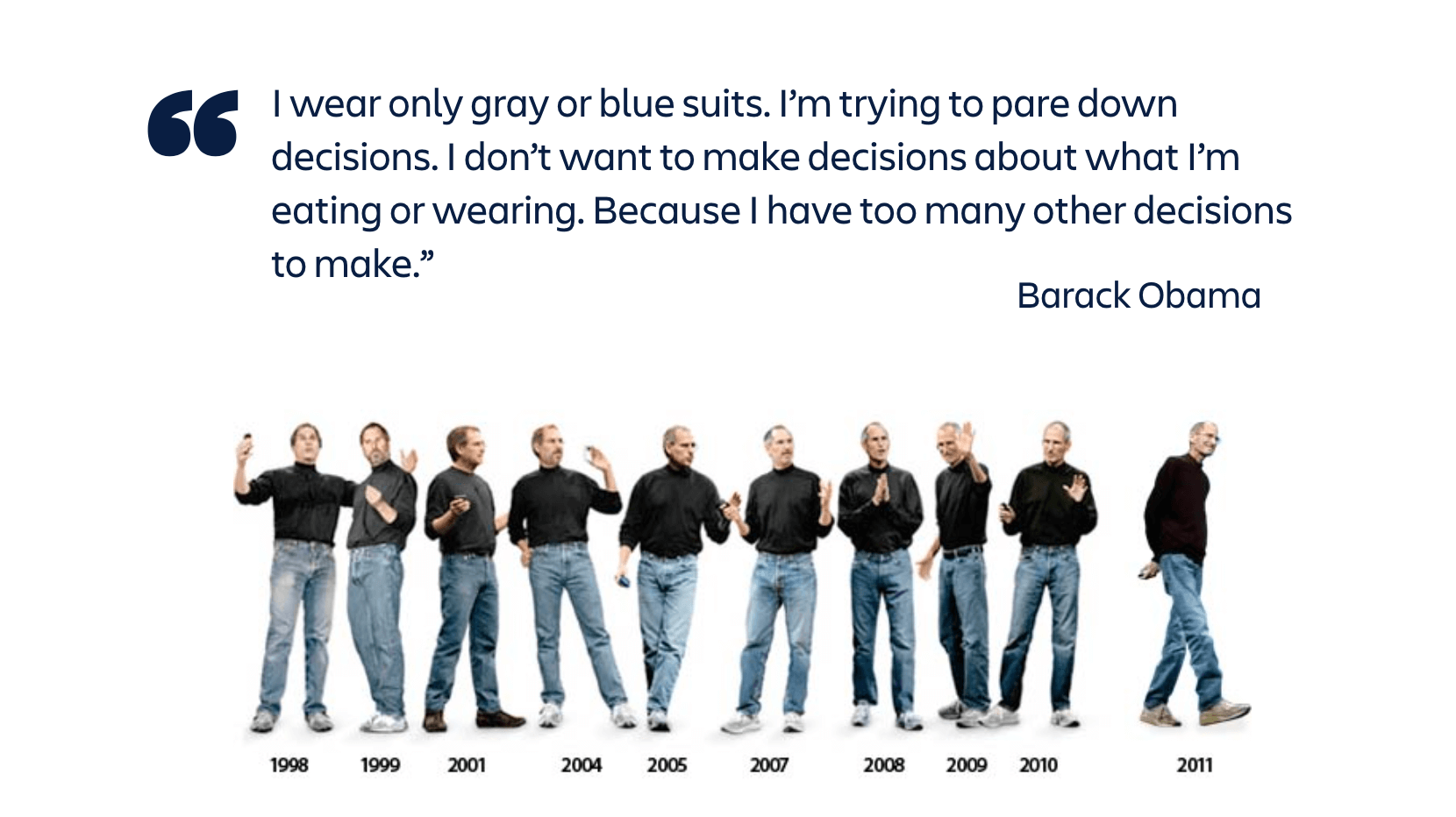Does the idea of following an agenda, bullet journaling, or even sending calendar invites make you want to run screaming into the night? Me too, actually. Despite this, I still became a productivity pro and managing editor of a blog literally about productivity.
That’s right: I am punctual, I hand in assignments on time, and I communicate effectively with my team and our network of freelance writers.
But all this didn’t come naturally to me. I had to adapt my habits to make this happen. Henceforth, I’m sharing my wisdom for fellow slackers.
The bad news is that no one becomes a productivity pro overnight. The good news, however, is that there’s still hope for even the laziest among us. Leveraging known frameworks and results from social science can help you to reach beyond your own innate productivity abilities.
To start, the biggest productivity woes can be synthesized into these 5 categories:
- Prioritization
- Time management
- Communication
- Ability to focus
- Feeling burned out
So let’s break it down.
1. Prioritize Your Priorities
Tell me: is this you? You’ve got 100 things on your to-do list, but somehow you spend the subsequent 5 hours not accomplishing any of them.
You do a little bit here, and a little there, and then you browse the internet for a while,
then you make a sandwich, then you you spend a few hours down a rabbit hole of some other, entirely unrelated task that’s not even on your to-do list.
We’ve all done this, but why?
Part of your problem here is analysis paralysis. You have so much on your plate that you simply don’t know where to start at all.
How To Prioritize With The Eisenhower Matrix
In an analysis paralysis situation, you can actually channel a lesser-known productivity professional: Dwight D. Eisenhower.
Appropriately, Dwight D. Eisenhower was actually a very productive guy. He was a general in World War II, he was President of Columbia University, and oh yeah, the 34th president of the United States!
He was known in his circles for being an exceptionally organized person, and as such he is credited with inventing a framework called the Eisenhower Matrix:

The Eisenhower Matrix is a system of prioritization that can be split into 4 boxes:
- Important/Urgent
- Important/Not Urgent
- Not Important/Urgent
- Not important/Not-Urgent
Take all of your tasks and figure out which box they might fall in. For example:

So once you’ve decided where all your myriad tasks go, what do you do now?
You execute!

Now remember, you had a lot on your plate and you were having trouble figuring out where to start. The order in which you execute the tasks on your lists are:
- The Do column: do these first, as they are both important AND urgent.
- The Decide column: do these next, or even create a calendar invite or reminder for yourself for when these tasks will be on deck.
- The Delegate column: We don’t all have personal assistants, but there still may be members of your team or family that can take some tasks off your plate.
- The Delete column: When you have a lot of tasks, anything in this list needs to get put to the side. OR, you can use these tasks as your “reward” for completing everything else in the other columns on your list.
You can also turn your Eisenhower Matrix into a Trello board for a visual flow:

Get a more detailed explanation of the Eisenhower Matrix, plus a sample Trello board here:
Practice The Rule of Five
There’s another trick you can do for better prioritization— and it was actually one of the fundamental reasons that we invented Trello in the first place!
Trello’s co-founder, Joel Spolsky, found that at his software company, Fog Creek, he felt like he didn’t know what everyone was working on.
What Joel did was he asked everyone at the beginning of each week to provide him with a list of 5 items:
- 2 items they were currently working on.
- 2 items they planned to work on next.
- 1 item that everyone probably thinks they’re working on, but they’re not actually doing at this time.
The findings actually surprised him.
What Joel realized when looking at everyone’s lists was that the things that people were actually working on were all over the place. A lot of the tasks really didn’t align much with the bigger goals that management had.
He realized this was an error in transparency: no tool was showing these lists in a clear, digestible way. So long story short, this lack of transparency was one of the realizations that helped birth the tool that eventually became Trello.
Anyone else just get goosebumps? No? Just me. Okay. Cool. Anyway!
Here is an example of how you can translate the Rule of 5 into a Trello board format.
Traffic-light colored labels to indicate the projects currently being worked on, working on next, and not doing:

2. Time Management
So we’ve established some methods for how to figure out what you should be doing. But how about when? And for how long?
For example, do you ever feel like you’ve spent entire days in back-to-back meetings talking about work, but never actually getting any time to do any of said work?
This goes on for days and then suddenly it’s the next week and you’re in the follow up meeting for something you talked about last week, and someone is asking you about the status of the project. You realize you haven’t actually had any time to do any of that work, because you’ve only been in meetings talking about doing work.
This doesn’t yield good results for anyone. So how do you thwart it?
Figure Out If You’re A Maker Or Manager
So here’s a concept that might help shed some light on why the aforementioned scenario keeps happening: makers vs managers.
This line of thought was first popularized by another famous software engineer turned tech blogger, Paul Graham, the founder of Y Combinator. He realized that most job titles can be broken down into 2 categories: makers or managers.
Managers are just what you think: they’re the people that facilitate work. They are the delegators, the project managers, the team leads. They make decisions that help move work along.
Managers sit in meetings to help understand higher-level company objectives. They remove roadblocks so their teams can continue creating. Their calendar is also the sort of thing that gives me hives.

But that’s their job. That’s how they operate.
Makers, on the other hand, are individual contributors, and their job is to execute on the work that needs to happen. Their job is to sit quietly for long, uninterrupted periods of time and get sh#t done, frankly.
A maker’s calendar should look nothing like a manager’s calendar:

So which one are you? Figuring this out should help inform the errors in your time management.
If you’re a maker sitting in meetings all day, you’re not able to be effective. Subsequently, if you’re a manager and your makers are in a bunch of meetings, you need to figure out which of those you can attend for them, or just simply identify meetings that your makers need to drop entirely.
Perfect The Pomodoro Technique
Speaking of time blocking, it’s one thing to sit here and discuss it. But here’s how you actually do it:
The Pomodoro Technique is one of the most popular tactics for blocking your time. It was invented by a guy named Francesco Cirillo while he was in college in Rome. The process is simple:
- Take a large task you need to complete.
- Break it into smaller chunks.
- Pick one chunk to work on at a time.
- Set a timer (preferably one shaped like a tomato ) for 25 minutes.
- Jam on that singular task for those 25 minutes.
- Take a 5 minute break.
- Repeat.
Another reason this technique works so well is that it’s a great way to trick your brain into getting into the elusive “zone.” You know that magical place: it’s where you’re completely mono-focused on a project and you’re completely heads down, working productively.
But research shows it’s hard to get into the zone. One study from the University of California, Irvine, found that a typical office worker only gets 11 minutes in between each interruption. And here’s the kicker: it takes them an average of 25 MINUTES to return to their original task after the interruption.
So if you’re struggling to get into focus mode, give the Pomodoro technique a try the next time you need to go heads down.
3. Communication & Feedback
Tell me if this has ever happened to you: you’ve been working on a huge project for weeks. You’re putting together a big presentation for it for all the higher up people at your company. You’re so psyched, and nervous, and eager, and it’s all just COMING TOGETHER!
So you give your presentation, and a discussion ensues. Suddenly you realize that a manager or two in the room is raising all these new doubts and before you know it, the conversation has devolved into:
“Yeah… we need to rethink the entire direction of this project.”
So you go back to your desk and you’re SEETHING with anger and frustration because you realize that you’re going to have to come in on Saturday to re-work your entire proposal. It’s a terrible feeling, truly.

At Atlassian we call this phenomenon “The Seagull Effect.”
It basically means that someone who had no context for the project swooped in at the last minute, and pooped all over your work.
As a way to spin your misfortune: Take this experience as a way to reflect on what YOU could have done differently. Because at the end of the day, that’s the only thing you can control.
There’s a technique you can use to combat seagulling. It’s called the 30/60/90 framework, and it is designed for you to get different types of feedback at different stages of your project.

Let’s break it down:
- 30% feedback: At about a third of the way into your project, you should solicit the team for “big picture” feedback. Remember: don’t do a TON of work before you start inquiring if you’re on the right track. At this point you should probably have an outline, a rough sketch, or a product spec. Before you go any further you want to solicit some early, higher level feedback.
- 60% feedback: Once you’ve gotten a decent portion of work done, it’s time for 60% feedback. You should basically have a relatively fleshed out first draft ready for this stage. This is a critical phase, and arguably the longest, so make sure you get as many people in on what you’re doing as possible. The next round of feedback is when the project is nearly complete.
- 90% feedback: So now that you’ve gone through 2 rounds of feedback at different stages, it’s time to put the final touches on everything before it goes out. This is the time to catch any last minute tweaks. This is NOT the time to talk about “the overall direction.”
4. Ability to Focus
I hate to tell you this, but your brain is basically wired to get distracted. Effectively, when we encounter a shiny new thing, our brain releases dopamine. And dopamine, also known as the “feel good hormone,” is the neurotransmitter responsible for feelings of bliss and euphoria.
That’s one of the reasons it’s so easy for us to get distracted when we’re trying to focus: It actually feels good.
So that’s the bad news. The good news, however, is that there are some ways to trick your brain into thinking it is being distracted, when really it is being productive:

You’re not going to like this first one, but you MUST turn off or put away anything that is sending you notifications:
- If you have desktop notifications, turn ‘em off.
- Put your phone on silent, AND TURN IT UPSIDE DOWN.
- And for the love of all that is holy, you must turn off any Slack, GChat, WhatsApp, Skype, or any other chat app service you use.
Then, and only then, are you putting yourself in a position to get into the zone! You can pomodoro, you can burn through your Eisenhower Matrix, whatever you want.
Grab A Seat At Your Local Coffeeshop
There’s another trick to focus mode, and you’re going to like this one better. Apparently, your brain really loves novelty. It has a classic case of “shiny object syndrome.”
Some researchers attribute this to our evolutionary ancestors. Homosapiens were actually the only group to emigrate over the entire world, which entailed a large risk. Why not just stay put wherever you are?
Effectively, because of this movement researchers characterize humans as craving novelty, or intensity seeking. This phenomenon comes back to that dopamine release: your brain craves something new because it feels good. So how can you hack that dopamine release to work to your advantage?
Switch your location. Engage in what we call, “The coffeeshop effect.”
When you’re feeling particularly unfocused, you should move somewhere else to do your work. Heading to your local coffee shop is a great place to resettle yourself and get back down to business. Or a library. Maybe for some people it’s just moving to a different room.
Whatever your flavor, get moving to get your productivity levels bubbling.
5. Experiencing Burnout
There’s one more thing about your productivity that needs addressing: and that’s the feeling that you’re overextended or burned out.
The truth is, it’s common to bite off far more than you can chew. Some jobs are way too demanding, maybe more than you care to admit.
And the sad part is, the feeling of burnout is one of the leading causes of employee turnover, and decreased company culture. If you hate how much you’re working, inevitably you’re going to hate your job. And that resentment grows over time.
Give Decision Fatigue A Rest
Did you know that on average you make 35,000 decisions every single day? Yiiiikes.
So making all these decisions actually leads to a phenomenon called decision fatigue. Yes, you can actually tire of making choices. The result of this is lower self-control and willpower.
A good example of this is if you’re trying to eat healthy, but you’ve had a stressful day at work and you come home and you literally can’t bear the thought of also choosing a healthy dinner. So you order a pizza. Listen, we’ve all been there.

One famous example of this is leaders who have to make decisions every day becoming notorious for wearing the same thing all the time. Barack Obama, Steve Jobs, and Mark Zuckerberg have all talked about this.
They do this because they already have far more other decisions to make every day. They’re trying to clear the way of distractions.
So that’s one thing to consider to avoid burnout: try to limit the amount of decisions you’re making every day.
The Real Secret To Productivity…
Another effective way to avoid burnout is remarkably simple, but also really hard.
Are you ready? This is the true spice of a productive life:

JUST. SAY. NO.
Admit it, people: you’re not saying no nearly enough!
You want to be a team player, you want to help out, you want to be seen as agreeable.
You are DROWNING in work, and your boss asks you to spearhead a new initiative, and you hear yourself saying “Yes” when inside your head you are SCREAMING “no!” a million times.
The reality nowadays is that focus is about saying no. Because saying yes to one thing is saying no to something else. What is that going to be? What’s going to take a hit because you said yes to this new thing?
Is it your other important projects you’re already working on? Is it your work-life balance? Is it your time with your family? Something is going to take a hit. You decide what that’s going to be.
To learn more about why you’re not saying no enough, and can dig into the D.O.C. framework here to learn how to turn down projects at work.
Put The Productivity Power Back In Your Hands
You can take control of your productivity but remember:
- There are invisible forces at play all around you that are preventing you from doing your best work. Learning to identify them is a way to empower yourself to overcome them.
- Tools and frameworks can help you overcome these obstacles in order to ultimately be more productive.
- Leverage research findings from social scientists to dial into better productivity methods.
Stay productive, folks!








































